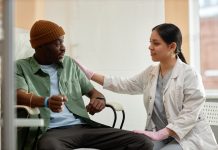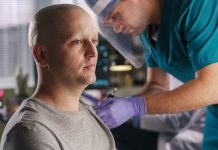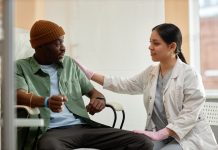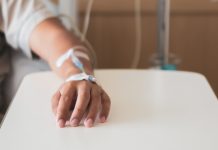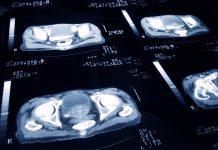Driven by personal loss, this healthcare leader shares how their organisation (SAH Diagnostics) partners with the NHS, combining innovation and clinical excellence to reduce NHS cancer backlogs and improve patient outcomes in an exclusive interview with Open Access Government
Q: Mr. Feroz Agad, what inspired you to pursue a career in healthcare, and what role do you play in your organization?
A: My decision to enter the healthcare sector was deeply personal. I lost both my uncle and grandfather to cancer, which had a profound impact on me. This experience motivated me to make a tangible difference in the field. It continues to drive everything I do.
In my role as Director & CEO, I’m dedicated to ensuring our organization delivers the best quality service whilst maintaining the highest clinical standards.
Our culture is centred around the patient – our top priority is to ensure that they are treated in a safe, healthy, and well-led environment.
This is reflected at every level of our organization. We conduct rigorous background checks when onboarding new clinicians and have experts like our Head of Clinical Services, Jonah Rusere, observe their techniques in practice. This ensures that everyone on our team not only meets but exceeds the standards we set for patient care.
Q: How does your organization collaborate with the NHS to address the cancer backlog, and what role do NHS frameworks play in this?
A: Collaboration with the NHS is crucial to our operations. We are currently part of eight different NHS frameworks, which refresh every 1-6 years and involve a rigorous tender process.
Our organization is vetted on everything from standard operating procedures to data protection measures. We are certified in several key areas, including CQC, ISO 9001, ISO 27001, ISO 14001, ISO 45001, and we hold Cyber Essentials Plus certification for GDPR compliance. This work is led for us, by Jane Gawne, who has over 15 years of experience working with and at supply chain.
Frameworks make it simpler for NHS organizations to engage our services as they don’t need to run their own tenders. This means we can respond quickly to urgent needs.
At University Hospital Leicester NHS Trust, we helped address a significant cancer backlog by deploying our services rapidly. Pace and efficiency were key factors in our winning this year’s HSJ Gold Award for Most Effective Contribution to Improving Cancer Outcomes.
Q: Managing NHS cancer backlogs requires precision and speed in diagnostics. How does your organization ensure that it delivers accurate and timely results for patients?
A: Our organization’s culture emphasises strong clinical governance to achieve a balance between precision and speed. We ensure that all necessary vetting and preparations are complete before we deploy any services. We have established processes that are ready to be tailored to the specific needs of any NHS Trust.
We follow NICE guidelines, NHS protocol and any specific NHS trust policies meticulously. If an NHS Trust has preferred methods for handling tissue samples during biopsies, for example, we adopt them. But we also proactively suggest evidence-based improvements where we see opportunities to enhance patient outcomes.
Our approach ensures we deliver timely results without compromising the quality of care. Speed must never come at the cost of accuracy or patient safety.
Q: What innovations or expansions are you planning to further support healthcare systems in managing and reducing cancer backlogs?
A: One of our primary goals is to establish cancer treatment facilities, including both radiation oncology and conventional oncology centres. This is part of our broader strategy to enhance healthcare infrastructure in the UK and around the world.
We also want to bring innovation to the systems we serve. We’re exploring the use of AI to improve diagnostics, although we approach this with caution. AI is a powerful tool, but it’s not a panacea. We must ensure that any applications we implement are evidence-based and enhance, rather than replace, the human element of care. Indeed, we are expanding our workforce, recruiting within the UK and bringing in talent from abroad. This helps us support the NHS without drawing away from its current resources.
Telemedicine and teleradiology are also key areas of focus. We’re creating more modular and mobile units for deployment in the community. These technologies allow us to provide services in more remote or underserved areas. These units are becoming smaller, more efficient and more effective at delivering care closer to where patients live.
Our training and education program is another important initiative. We are developing a certified training program for advanced nurse practitioners across various specialties. By upskilling the workforce, we can help NHS Trusts maintain high standards of care even when facing staffing challenges.
Finally, we want to integrate systems that centralize patient data and ensure no patient falls through the cracks. By plugging into various imaging modules and creating a central repository, we aim to streamline patient management and improve outcomes.
Q: Can you tell us more about the work that led to the award your organization recently received?
A: Absolutely. We received the HSJ Gold Award for our work with the University Hospital Leicester NHS Trust (“UHL”) through the East Midland Cancer Alliance, where we played a crucial role in addressing a significant cancer backlog in Leicester.
UHL faced a crisis due to equipment failure and staff shortages. They needed urgent help to clear a backlog of 100 prostate biopsies (“LATP”).
We mobilized a fully staffed and equipped modular unit in just 10 days, delivering the physical facility (the world’s first mobile urology unit) and setting up all the necessary infrastructure: water, waste, electricity and IT connections. We made sure the environment was welcoming for patients, despite being a mobile unit. The operation was a success. We performed over 300 LATP procedures within a tight timeframe and cleared the backlog, before swiftly moving to our next location.
But our contribution didn’t stop there. We trained and certified two advanced nurse practitioners from the Trust so they could maintain the progress we had made. This helped the Trust move from being the worst-performing in the country to one of the most improved. Our work equipped the organization to handle future challenges more effectively.
We received overwhelmingly positive feedback. Patients who had undergone multiple procedures in the past told us that this was the best experience they’d ever had, which is incredibly gratifying. The Trust itself acknowledged that our approach opened their eyes to new ways of improving clinical efficiency and patient care.
Q: What are your next steps following this recent success?
A: We’re continuing to innovate and expand our impact, establishing new physical facilities and exploring further technological advancements. For a list of areas that we work in you can visit our website: www.sahdiagnostics.com.
Our goal is to publish more about our work to share our learnings with the broader healthcare community. An article coming out in January will outline our vision for the future, particularly in reducing NHS cancer backlogs.
We’re committed to staying at the forefront of healthcare delivery, always looking for new ways to improve patient outcomes and support the NHS’s mission to provide high-quality care for all.

This work is licensed under Creative Commons Attribution-NonCommercial-NoDerivatives 4.0 International.



